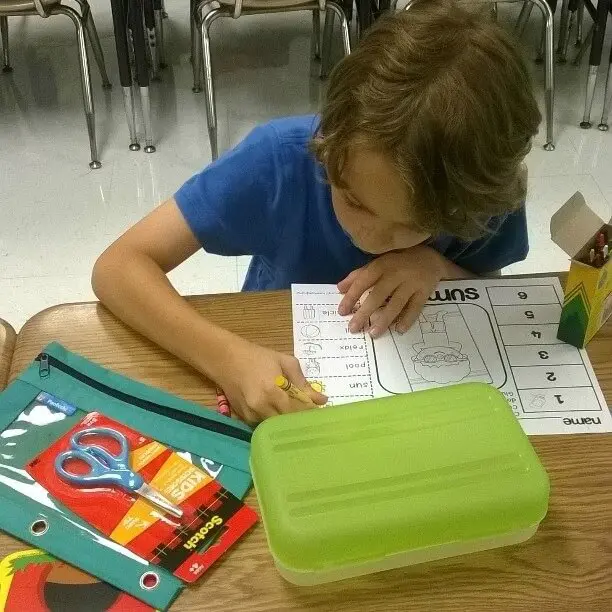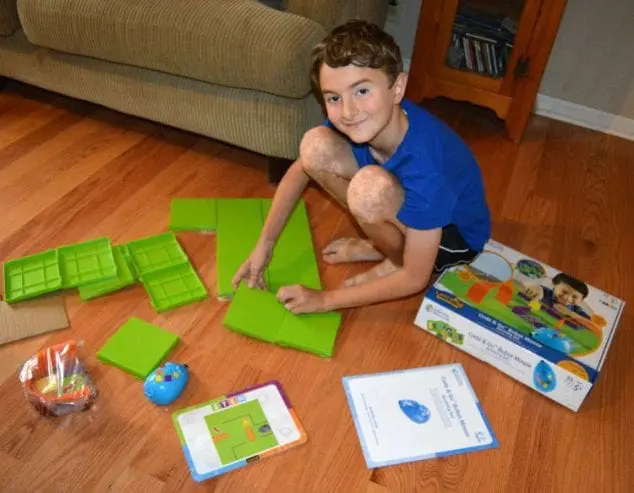Are you wondering, “What motivates a child to learn?” One of the most important aspects of nurturing a life-long learner is extending learning beyond the classroom. There is no question that the skills students learn in school are important for both academic and social growth. But, learning goes beyond the classroom as well and children must be open to the larger world of ideas and learning as a life long pursuit. Here’s how to motivate your child to learn and to love learning without bribery.

What Motivates Children And 10 Tips To Make Them Eager Learners
What motivates your child? Well, many different things can motivate a child! A child is often motivated by a mix of encouragement, clear goals, and feeling capable and valued for their efforts.
What motivates a child to learn? Usually, curiosity is the best, most natural motivation to learn.
What motivates a child to do well in school? Often, the desire to please you coupled with the belief that they can.
If you learn how to motivate your child to learn, they will naturally do better in school. In fact, the following ways to motivate your child to learn are likely to increase academic success and the desire to engage in life-long learning. Here is what motivates kids.
Make reading part of the daily routine.
Demonstrating the importance of reading is one of the key ways to motivate your child to learn. Children cannot comprehend why they need to learn how to read if their world is devoid of reading materials. In addition to books, magazines, and newspapers, consider other venues for print at home, such as posters and placemats with words on them. For younger children, establish a regular read-aloud time and give them the opportunity to choose many of the selections. For older children, establish a family book club when everyone reads together silently and/or discusses his or her current reading selection. The best approach is to make it fun and help them find a style of literature they enjoy.
Encourage your child’s interests.
You will have difficulty finding ways to motivate your child to learn if you do not consider his or her interests. For example, a child may not be interested in reading or writing until he or she realizes that reading and writing about trains, for example, is a possibility. Seek out opportunities for children to further their interests whenever possible, and the learning will come naturally. You can help them start fun journal projects about their special interests. A nature lover may enjoy an educational project like a tree identification journal for instance. Supporting a child’s natural curiosity and talents will allow the child’s intrinsic motivation to work in your favor.
Support multiple learning styles.
Children learn in different ways, many of which begin with playing in different ways. The key to many of these playing/learning opportunities is unstructured time. Children are not able to develop their problem-solving skills and creative forms of expression unless they have this unstructured time on a regular basis. You should support your child by offering various learning styles for those that may be visually inclined or more verbal. Kids can best discover the joy of learning when they are allowed to process information in a way they be most successful.
Show excitement about your own learning experiences.
One of the best ways for both children and adults to become excited about learning new information is to have it modeled for them. Children are more likely to get excited about their own learning pursuits when they see how excited their parents are about what interests them. For example, take the time to discuss how you have been learning new gardening tips from a friend and how your new knowledge has improved the family garden this year. Think back to your favorite teachers, I bet they were the ones who were excited about the topic and shared their love for it. This type of positive approach works for kids of all ages.
Inquire about school.
When you ask your children how school went to today, ask them about what they learned instead of only focusing on grades and test scores. Children appreciate your interest in their learning and benefit from the chance to review their newly acquired information. This is especially important if your child is struggling with grades. You don’t want to make them apprehensive about grade checks or let them feel that you don’t think can do well. You want to show them that you are proud of what they are learning and encourage them in a positive way to learn more.

Celebrate academic achievements.
When you consider ways to motivate your child to learn, seek out opportunities to reward with genuine praise. Give positive reinforcement for both small and big accomplishments to keep your children motivated to keep learning and challenging themselves. For many children, the extrinsic motivation of garnering praise and approval from a parent is the key reason for their academic achievement. External rewards are often the reason we set goals, even as adults.
Allow academic control.
Children need strong organizational skills to be successful life-long learners. Since parents or teachers cannot oversee all of their school work, give children the tools they need to organize themselves and provide support as needed. Make sure they have a way to record their homework assignments and mark them done. It can be an agenda or a homework sheet but they need to have a system. Ask if you can see theirs and help them develop one if they don’t have a system that works. The best way for young children to learn a new skill is often to be shown an effective way so that they have a basis for developing their own model.
Focus on strengths.
While it is inevitable that children have areas of academic weakness that require extra work, it is important to praise and focus on their strengths to avoid discouragement. Even when a child gets a low score on an English test, you can still praise his or her high math quiz score. Take it one step further and consider opportunities for him or her to take on new math challenges, such as an after school club or summer camp.
Maximize every day learning opportunities.
There is no shortage of ways to motivate your child to learn through daily activities. From writing a grocery list to calculating miles per gallon when filling up the gas tank, your child keeps learning naturally throughout each day.
Talk To Your Child About The Growth Mindset.
Learning about mindsets will help your child see the importance of attitude and help them think about learning in a positive way. Having a growth mindset will allow them to see that challenges are not bad and to be avoided but rather an opportunity to learn.

What Motivates Your Child Examples
- Recognition: Children often feel motivated when they receive acknowledgment and praise for their efforts, whether it’s from parents, teachers, or peers. Positive reinforcement can boost their confidence and drive them to excel further. My daughter will often do more artwork when I say something like, “That painting took a lot of hard work from you and it came out so nicely. You are really a good artist.”
- Setting goals: When children have specific, achievable goals, it can motivate them to work hard to reach those milestones. Whether it’s academic goals, sports achievements, or personal development targets, having something to strive for can be a powerful motivator. When my son was learning the alphabet I told him, “Every time you get a letter right, I will give you an animal cracker.” With a clear goal and clear reward, he learned all the rest of his letters that same day!
- Social connections: Some children are motivated by social interactions and friendships. Working together in groups, collaborating on projects, or participating in team activities can be motivating for them. When my daughter’s friend said, “You are really good soccer.” She tried even harder to score goals and prove her right.
Conclusion
Understanding what motivates your child can make a big difference in shaping their behavior and guiding them toward long-term goals. Whether it’s the first time you’re trying to inspire hard work through household chores or you’re working through a common problem like lack of focus, the key lies in finding the right motivation. While external factors like rewards can help, lasting results often come from giving children opportunities to feel capable and appreciated. When we connect effort to purpose, we help our kids see the value in their actions and encourage them to grow into responsible, motivated individuals.
Fueling a child’s internal motivation is often the best approach to sparking feelings of accomplishment. External factors such as positive feedback can begin to help kids set and reach long-term goals. I hope these 10 tips on how to motivate a child to learn help answer your question on, “What motivates a child to learn?” There are so many things you can do to encourage your child’s success. Which of these tips do you think will be helpful for motivating your child to learn?
Related Posts:
The Growth Mindset For Kids- What It Is, Why It Is Important, And Change


Randy says
This is such a thoughtful post! Understanding what motivates a child is so important, especially when it comes to building long-term habits like hard work and responsibility. I love how you emphasized giving children opportunities and recognizing their efforts—such a helpful reminder for any parent!
Kaya says
This post really resonated with me! Encouraging kids to try new things is such a great way to build confidence and independence. I agree that the most important thing is to avoid turning everything into a power struggle—sometimes a little patience and understanding go a long way.
Ken says
It’s so helpful to think about the right type of motivation for each child. Creating a list of short-term goals is a great way to keep them focused and moving forward. I also appreciate the reminder that while negative consequences have their place, positive encouragement often works better in the long run.
Mina says
Great tips! Figuring out how to motivate your child can be challenging, but it’s so rewarding when you see them light up with confidence and purpose. I love the idea of combining encouragement with structure—it really helps turn everyday tasks into meaningful growth opportunities.
v vidya says
This is a thoughtful and practical approach to nurturing a love for learning—connecting reading to a child’s interests makes it both meaningful and enjoyable. Encouraging curiosity through fun, personalized activities is a powerful way to inspire lifelong learners!
Nikita Bisht says
Such great advice! Making reading a fun, everyday part of life is the best way to nurture a child’s love for it—whether through cozy read-aloud sessions or family book clubs. When kids see reading as a joy rather than a chore, it opens up their curiosity and imagination.
Love the idea of turning reading into a shared adventure!
Pakistan Savings says
Wonderful post, Scarlet! Your insights on understanding children’s unique motivations are both thoughtful and practical. I especially appreciated how you emphasized empathy and communication. Thank you for such a valuable read!